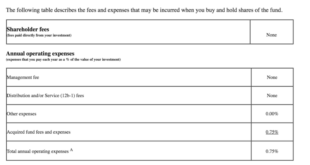Mortgage Broker Qualifications: Guide to Starting Your Career. Mortgage brokers play a pivotal role in the real estate and finance industries by connecting borrowers with suitable lenders. To succeed in this career, understanding the necessary qualifications and skills is essential. In this comprehensive guide, we’ll explore the qualifications required, key tips for building a successful career, and answers to frequently asked questions about mortgage brokers.
What Are Mortgage Broker Qualifications?
Mortgage broker qualifications encompass a mix of educational requirements, certifications, licenses, and personal attributes. Here’s a closer look at what you need to become a mortgage broker:
- Educational Background
A high school diploma is the minimum requirement, but pursuing a degree in finance, business, or economics can give you an edge in understanding the industry. - Licensing Requirements
- In the United States, mortgage brokers must pass the SAFE Mortgage Loan Originator Test to obtain a license.
- Licensing involves completing pre-licensing courses (usually 20 hours) and passing a background check.
- Work Experience
While formal work experience isn’t always mandatory, having a background in sales, finance, or real estate can be beneficial. - Key Skills
Successful mortgage brokers possess:- Strong communication and interpersonal skills.
- Knowledge of financial regulations and mortgage products.
- Analytical skills to assess a client’s financial situation.
- Continuing Education
Most states require brokers to complete annual continuing education courses to stay updated on regulations and industry practices.
The Steps to Becoming a Mortgage Broker
- Research Local Licensing Requirements
Licensing rules vary by location. Check your state or country’s specific requirements. - Complete Pre-Licensing Education
Enroll in courses that cover ethics, mortgage laws, and loan processes. - Pass the Licensing Exam
Study and pass the SAFE exam to obtain your Mortgage Loan Originator (MLO) license. - Find Employment or Start a Business
Work for an established brokerage firm or set up your independent practice. - Build a Network
Develop relationships with lenders, real estate agents, and clients.
Benefits of Being a Mortgage Broker
- Flexibility in Work Schedule
Mortgage brokers often have control over their schedules, allowing for better work-life balance. - High Earning Potential
Income is commission-based, meaning higher performance equals higher earnings. - Dynamic Work Environment
The role involves working with diverse clients and financial situations.
Challenges in the Mortgage Broker Career
- Market Volatility
Economic shifts can impact the demand for mortgage services. - Regulatory Compliance
Brokers must stay updated on laws and regulations to avoid penalties. - Competition
The industry can be competitive, requiring brokers to differentiate themselves through exceptional service.
10 Tips for Aspiring Mortgage Brokers
- Pursue Relevant Education to gain foundational knowledge in finance.
- Network Actively with industry professionals.
- Learn Digital Tools for managing client databases and tracking leads.
- Master Sales Techniques to close deals effectively.
- Stay Updated on Market Trends and mortgage products.
- Focus on Customer Service to build a strong reputation.
- Develop a Marketing Strategy using SEO and social media.
- Seek Mentorship from experienced brokers.
- Track Your Performance and set measurable goals.
- Invest in Continuing Education to stay competitive.
10 Frequently Asked Questions (FAQs) About Mortgage Broker Qualifications
- Do I need a degree to become a mortgage broker?
While not mandatory, a degree in finance or business can be beneficial. - How long does it take to get licensed?
It typically takes 2–3 months to complete education, pass the exam, and obtain a license. - What is the SAFE exam?
The SAFE Mortgage Loan Originator Test assesses your knowledge of mortgage laws, ethics, and practices. - Is work experience required?
Not always, but experience in sales or real estate can help. - What skills are most important?
Communication, analytical thinking, and knowledge of financial regulations are key. - How much can I earn as a mortgage broker?
Earnings vary but often range between $50,000 and $150,000 annually, depending on performance. - Are there any age restrictions?
You must be at least 18 years old in most regions. - Can I work remotely as a mortgage broker?
Yes, many brokers operate remotely using digital tools. - Do I need continuing education?
Yes, most states require annual continuing education to maintain your license. - What are the common career paths after becoming a broker?
Some brokers move into real estate, financial advising, or starting their own firms.
Conclusion
Becoming a mortgage broker is a rewarding career path for individuals with strong interpersonal and analytical skills. The qualifications may seem extensive, but each step prepares you for a dynamic role in helping clients achieve their homeownership dreams. By focusing on education, licensing, and building relationships, you can thrive in this competitive industry.
Whether you’re just starting or considering a career switch, understanding mortgage broker qualifications is the first step to success. Take the plunge today and start building a prosperous future in the mortgage industry.
 mortgage.kbk.news
mortgage.kbk.news
